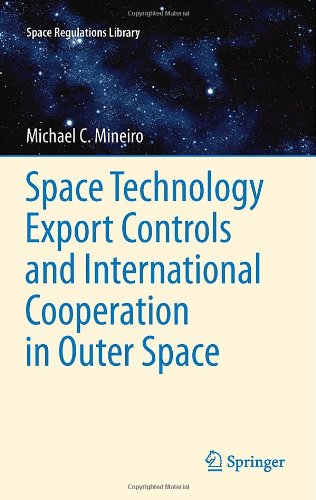

Most ebook files are in PDF format, so you can easily read them using various software such as Foxit Reader or directly on the Google Chrome browser.
Some ebook files are released by publishers in other formats such as .awz, .mobi, .epub, .fb2, etc. You may need to install specific software to read these formats on mobile/PC, such as Calibre.
Please read the tutorial at this link: https://ebookbell.com/faq
We offer FREE conversion to the popular formats you request; however, this may take some time. Therefore, right after payment, please email us, and we will try to provide the service as quickly as possible.
For some exceptional file formats or broken links (if any), please refrain from opening any disputes. Instead, email us first, and we will try to assist within a maximum of 6 hours.
EbookBell Team

4.3
78 reviewsExport controls definitively impact international cooperation in outer space. Civil and commercial space actors that engage in international endeavors must comply with space technology export controls. In the general discourse, members of the civil and commercial space community have an understanding of their domestic export control regime. However, a careful reading of the literature on space technology export controls reveals that certain questions relevant to international engagements have not been identified or answered.
What is the legal-political origin of space technology export controls? How do they relate to the current international legal structure? What steps can be taken to evolve our current unilateral paradigm of space technology within the context of peaceful exploration and use of outer space? In this book, these and other relevant questions on space technology export controls are identified and assessed through an insightful case-study of the U.S. commercial communication export control regime. The findings of this case-study are used in an international legal-political analysis of international space law, public international law, and international cooperation. Breaking new ground in international legal theory, a self-justified security dilemma that is manifest in international law is identified and explained as the origin for the current paradigm of space technology export controls.